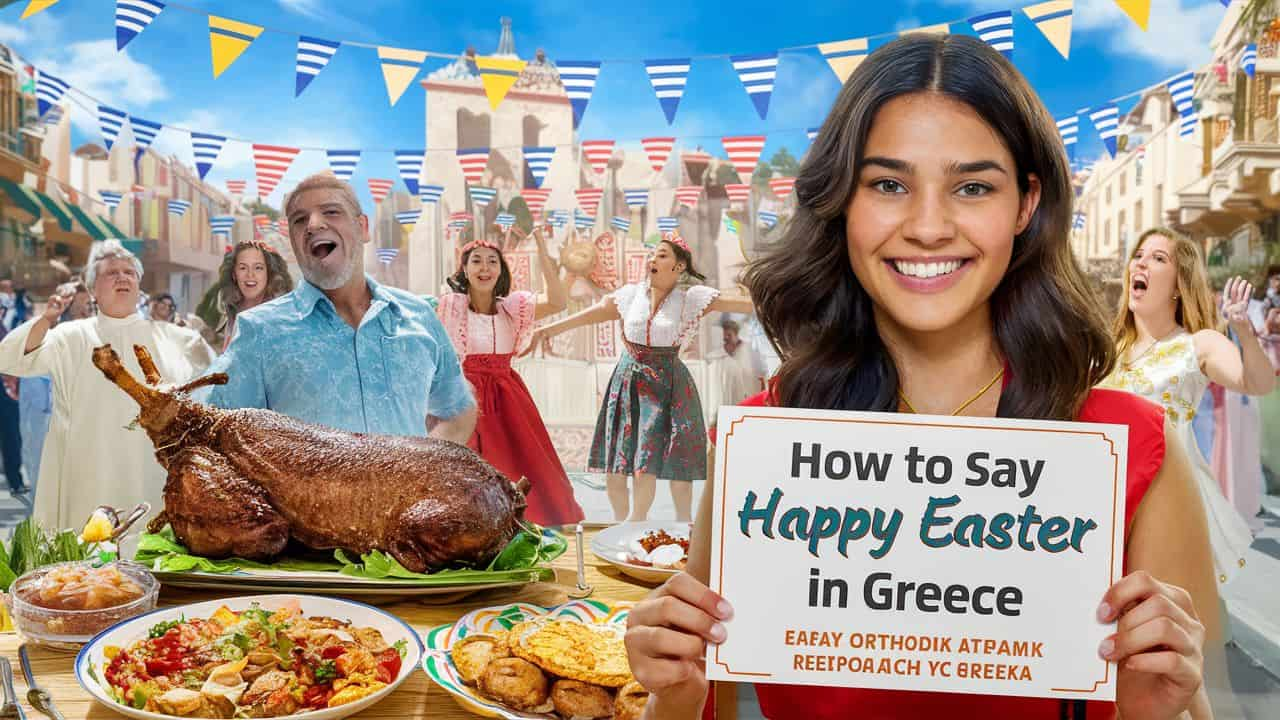Embracing cultural traditions adds depth and richness to our celebrations, and Easter in Greece is a vibrant testament to this. Steeped in centuries of history, Greek Easter, or ‘Pascha,’ as it’s known locally, is a captivating blend of religious reverence, familial bonds, and culinary delights. As we approach this joyous occasion, it’s not only about the exchange of chocolate eggs and festive greetings but also about understanding and appreciating the unique customs that define the Greek Easter experience.
In Greece, Easter is more than just a holiday; it’s a deeply cherished time filled with age-old rituals and heartfelt gestures. From the solemnity of Holy Week to the exuberance of Easter Sunday, every moment is infused with significance and symbolism. Whether it’s attending church services, partaking in traditional feasts, or engaging in spirited community events, the spirit of Easter permeates every aspect of Greek life.
So, let’s delve into the linguistic nuances and cultural significance of saying ‘Happy Easter’ in Greece, exploring the various expressions and accompanying traditions that make this festive season truly special.
Unique Ways to Say Happy Easter in Greece 2024
Καλή Ανάσταση (Kalí Anástasi):
Another common way to wish someone a happy Easter in Greek is by saying “Καλή Ανάσταση,” which translates to “Good Resurrection.” This greeting emphasizes the resurrection aspect of the Easter holiday and is often used interchangeably with “Καλό Πάσχα.”
Καλή Ανάσταση και Καλό Πάσχα (Kalí Anástasi ke Kaló Páscha):
This extended greeting combines both “Καλή Ανάσταση” (Kalí Anástasi) and “Καλό Πάσχα” (Kaló Páscha), wishing the recipient a “Good Resurrection” and a “Happy Easter” simultaneously. It’s a warm and inclusive way to express Easter wishes.
Χρόνια Πολλά (Chrónia Pollá):
While not specifically an Easter greeting, “Χρόνια Πολλά” is a versatile phrase used to wish someone many years of happiness and good health. It’s commonly heard during festive occasions, including Easter, as a way to extend general well wishes along with the traditional Easter greetings.
Καλό Απόκριες (Kaló Apókries):
In some regions of Greece, particularly in areas influenced by local customs and traditions, the Easter period is also associated with the preceding Carnival season. “Καλό Απόκριες” means “Happy Carnival” and is used to convey Easter wishes within the context of the broader festive season.
Καλή Σαρακοστή (Kalí Sarakostí):
Leading up to Easter, Orthodox Christians observe the period of Lent, known as “Σαρακοστή” (Sarakostí) in Greek. While not a direct Easter greeting, “Καλή Σαρακοστή” is a way to wish someone a meaningful and spiritually enriching Lenten season, acknowledging the importance of preparation for Easter.
Χρόνια Πολλά και Καλή Ανάσταση (Chrónia Pollá ke Kalí Anástasi):
Combining the wishes for many happy years with the traditional Easter greeting, this phrase expresses a heartfelt desire for both long-term happiness and the joy of the Easter celebration.
In conclusion, the Greek language offers a variety of ways to express Easter wishes, each carrying its own cultural and religious significance. Whether through the standard “Καλό Πάσχα,” the traditional religious greeting “Χριστός ἀνέστη!,” or the inclusive “Χρόνια Πολλά και Καλή Ανάσταση,” conveying Easter blessings in Greek reflects the depth of tradition and community spirit that characterizes this important holiday in Greece.

